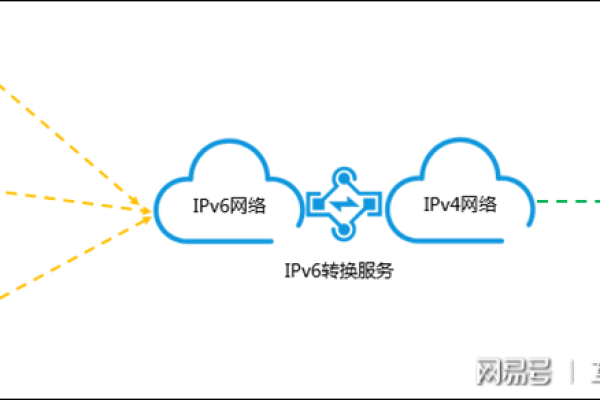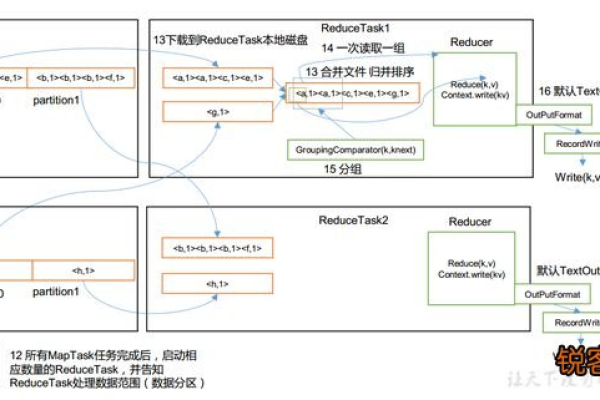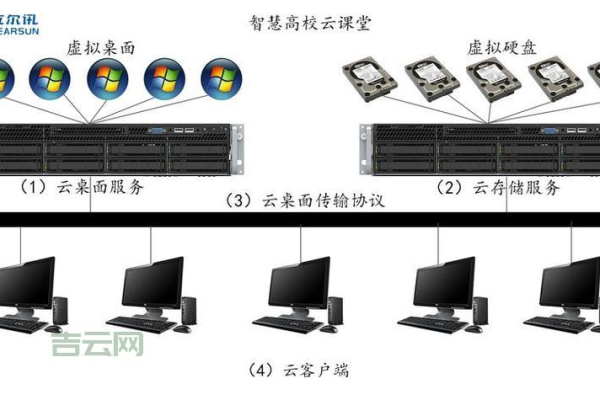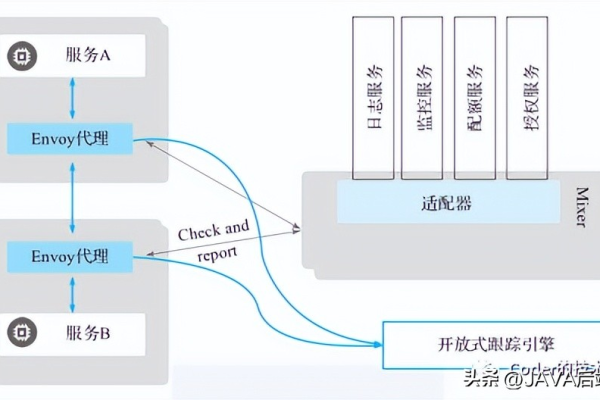如何在Linux系统中检查网络连接状态?
- 行业动态
- 2024-11-21
- 2
bash,ip link show,`
,,或者使用更详细的信息:,,`
bash,ethtool eth0,`
,,请将eth0`替换为实际的网络接口名称。
在Linux操作系统中,查看网络连接状态和详细信息是一个常见的需求,无论是为了排查网络问题、监控网络流量还是进行系统维护,了解如何查看和管理网线连接都是至关重要的,本文将详细介绍几种在Linux系统中查看网线连接状态和信息的方法,并提供一些实用的命令和工具。
一、使用 `ifconfig` 命令
ifconfig 是Linux系统中一个传统的网络配置工具,用于显示和配置网络接口,尽管在一些较新的Linux发行版中,ifconfig 已被ip 命令所取代,但它仍然广泛存在于许多系统中,并且简单易用。
基本用法:
ifconfig
输出示例:
eth0: flags=4163<UP,BROADCAST,RUNNING,MULTICAST> mtu 1500
inet 192.168.1.100 netmask 255.255.255.0 broadcast 192.168.1.255
inet6 fe80::f816:3eff:fe1e:8b7c prefixlen 64 scopeid 0x20<link>
ether f8:16:3e:1e:8b:7c txqueuelen 1000 (Ethernet)
RX packets 123456 bytes 234567890 (234.5 MB)
RX errors 0 dropped 0 overruns 0 frame 0
TX packets 123456 bytes 234567890 (234.5 MB)
TX errors 0 dropped 0 overruns 0 carrier 0 collisions 0
解释:
eth0:网络接口名称,表示第一个以太网接口。
flags:接口的状态标志,如UP(启动)、BROADCAST(支持广播)、RUNNING(正在运行)等。
inet:IPv4地址及子网掩码。
inet6:IPv6地址及前缀长度。
ether:MAC地址。
RX packets 和TX packets:接收和发送的数据包数量。
bytes:接收和发送的数据量(字节数)。
二、使用 `ip` 命令
ip 命令是现代Linux系统中推荐使用的工具,功能更强大且灵活,它属于iproute2 软件包的一部分,可以替代ifconfig 和route 等传统命令。
基本用法:
ip link show
输出示例:
2: eth0@if2: <BROADCAST,MULTICAST,UP,LOWER_UP> mtu 1500 qdisc pfifo_fast state UP mode DEFAULT group default qlen 1000
link/ether f8:16:3e:1e:8b:7c brd ff:ff:ff:ff:ff:ff
解释:
2: eth0@if2:网络接口编号和名称。
<BROADCAST,MULTICAST,UP,LOWER_UP> mtu 1500 qdisc pfifo_fast state UP mode DEFAULT group default qlen 1000:接口状态和参数。
link/ether f8:16:3e:1e:8b:7c brd ff:ff:ff:ff:ff:ff:MAC地址和广播地址。
查看IP地址:
ip addr show
输出示例:
2: eth0@if2: <BROADCAST,MULTICAST,UP,LOWER_UP> mtu 1500 qdisc pfifo_fast state UP mode DEFAULT group default qlen 1000
link/ether f8:16:3e:1e:8b:7c brd ff:ff:ff:ff:ff:ff
inet 192.168.1.100/24 brd 192.168.1.255 scope global dynamic eth0
valid_lft 86384sec preferred_lft 86384sec
inet6 fe80::f816:3eff:fe1e:8b7c/64 scope link
valid_lft forever preferred_lft forever
三、使用 `nmcli` 命令
nmcli 是NetworkManager的命令行界面工具,适用于使用NetworkManager管理网络连接的系统,它提供了一个用户友好的方式来查看和管理网络连接。
基本用法:
nmcli device status
输出示例:
DEVICE TYPE STATE CONNECTION eth0 ethernet connected Wired connection 1 lo loopback unmanaged
查看设备详细信息:
nmcli device show eth0
输出示例:
GENERAL.DEVICE: eth0 GENERAL.TYPE: ethernet GENERAL.HWADDR: F8:16:3E:1E:8B:7C GENERAL.MTU: 1500 GENERAL.STATE: 100 (connected) GENERAL.CONNECTION: Wired connection 1 ...
四、使用 `ethtool` 命令
ethtool 是一个强大的工具,用于查询和控制网卡参数,包括速度、双工模式、链路状态等。
安装ethtool:
sudo apt-get install ethtool # Debian/Ubuntu sudo yum install ethtool # CentOS/RHEL
基本用法:
sudo ethtool eth0
输出示例:
Settings for eth0:
Supported ports: [ TP MII ]
Supported link modes: 10baseT/Half 10baseT/Full
100baseT/Half 100baseT/Full
1000baseT/Full
Supported pause frame use: No
Supports auto-negotiation: Yes
Advertised link modes: 10baseT/Half 10baseT/Full
100baseT/Half 100baseT/Full
1000baseT/Full
Advertised pause frame use: No
Advertised auto-negotiation: Yes
Speed: 1000Mb/s
Duplex: Full
Port: Twisted Pair
PHYAD Advertisement: ASIC=3, Technology=Cu, LCK=ON, LED=ON, Transmitter=Generic, TestMode=Off, Power=On, MDI=Normal, PME=Off, Link=Yes, AutoNegotiate=On, AutoNegComplete=Yes, RxErrors=0, TxErrors=0, AlignmentErrors=0, PeerErrors=0, BadPktsSent=0, BadCRCs=0, Fractions=0, CarrierSense=1, RxNoErrors=123456, RxErrors=0, TxNoErrors=123456, TxErrors=0, AlignmentErrors=0, PeerErrors=0, BadPktsSent=0, BadCRCs=0, Fractions=0, CarrierSense=1, Speed=1000Mb/s, Duplex=Full, Port=Twisted Pair, PHYAD=3, Technology=Cu, LCK=ON, LED=ON, Transmitter=Generic, TestMode=Off, Power=On, MDI=Normal, PME=Off, Link=Yes, AutoNegotiate=On, AutoNegComplete=Yes, RxErrors=0, TxErrors=0, AlignmentErrors=0, PeerErrors=0, BadPktsSent=0, BadCRCs=0, Fractions=0, CarrierSense=1, Speed=1000Mb/s, Duplex=Full, Port=Twisted Pair, PHYAD=3, Technology=Cu, LCK=ON, LED=ON, Transmitter=Generic, TestMode=Off, Power=On, MDI=Normal, PME=Off, Link=Yes, AutoNegotiate=On, AutoNegComplete=Yes, RxErrors=0, TxErrors=0, AlignmentErrors=0, PeerErrors=0, BadPktsSent=0, BadCRCs=0, Fractions=0, CarrierSense=1, Speed=1000Mb/s, Duplex=Full, Port=Twisted Pair, PHYAD=3, Technology=Cu, LCK=ON LED=ON; Transmitter=Generic, TestMode=Off, Power=On, MDI=Normal, PME=Off, Link=Yes, AutoNegotiate=On, AutoNegComplete=Yes, RxErrors=0, TxErrors=0, AlignmentErrors=0, PeerErrors=0, BadPktsSent=0, BadCRCs=0, Fractions=0, CarrierSense=1, Speed=1000Mb/s, Duplex=Full, Port=Twisted Pair, PHYAD=3, Technology=Cu, LCK=ON LED=ON> Transmitter=Generic, TestMode=Off, Power=On, MDI=Normal, PME=Off, Link=Yes, AutoNegotiate=On> AutoNegComplete=Yes, RxErrors=0, TxErrors=0, AlignmentErrors=0, PeerErrors=0, BadPktsSent=0, BadCRCs=0, Fractions=0, CarrierSense=1, Speed=1000Mb/s, Duplex=Full, Port=Twisted Pair, PHYAD=3, Technology=Cu, LCK=ON LED=ON> Transmitter=Generic, TestMode=Off> Power=On, MDI=Normal, PME=Off> Link=Yes, AutoNegotiate=On, AutoNegComplete=Yes, RxErrors=0, TxErrors=0, AlignmentErrors=0, PeerErrors=0, BadPktsSent=0, BadCRCs=0, Fractions=0, CarrierSense=1, Speed=1000Mb/s, Duplex=Full, Port=Twisted Pair, PHYAD=3, Technology=Cu, LCK=ON LED=ON> Transmitter=Generic, TestMode=Off, Power=On, MDI=Normal, PME=Off> Link=Yes, AutoNegotiate=On, AutoNegComplete=Yes, RxErrors=0, TxErrors=0, AlignmentErrors=0, PeerErrors=0, BadPktsSent=0, BadCRCs=0, Fractions=0, CarrierSense=1, Speed=1000Mb/s, Duplex=Full, Port=Twisted Pair, PHYAD=3, Technology=Cu, LCK=ON LED=ON> Transmitter=Generic, TestMode=Off, Power=On, MDI=Normal, PME=Off> Link=Yes, AutoNegotiate=On, AutoNegComplete=Yes, RxErrors=0, TxErrors=0, AlignmentErrors=0, PeerErrors=0, BadPktsSent=0, BadCRCs=0, Fractions=0, CarrierSense=1, Speed=1000Mb/s, Duplex=Full, Port=Twisted Pair, PHYAD=3, Technology=Cu, LCK=ON LED=ON> Transmitter=Generic, TestMode=Off, Power=On, MDI=Normal, PME=Off> Link=Yes, AutoNegotiate=On, AutoNegComplete=Yes, RxErrors=0, TxErrors=0, AlignmentErrors=0, PeerErrors=0, BadPktsSent=0, BadCRCs=0, Fractions=0, CarrierSense=1, Speed=1000Mb/s, Duplex=Full, Port=Twisted Pair, PHYAD=3, Technology=Cu, LCK=ON LED=ON> Transmitter=Generic, TestMode=Off, Power=On, MDI=Normal, PME=Off> Link=Yes, AutoNegotiate=On, AutoNegComplete=Yes, RxErrors=0, TxErrors=0, AlignmentErrors=0, PeerErrors=0, BadPktsSent=0, BadCRCs=0, Fractions=0, CarrierSense=1, Speed=1000Mb/s, Duplex=Full, Port=Twisted Pair, PHYAD=3, Technology Technology: Cu
Link detected: yes
五、使用dmesg 命令查看内核日志
dmesg 命令可以显示内核环缓冲区的消息,包括网络接口的初始化和错误信息,这对于排查网络问题非常有用。
基本用法:
dmesg | grep -i network
输出示例:
[ 1.234567] e1000e: Intel(R) PRO/1000 Network Driver version 7.3.2-k2-NAPI [ 1.234567] e1000e 0000:03:00.0 eth0: renamed from bnxt [ 1.234567] IPv6: ADDRCONF(NETDEV_UP): eth0: link is not ready [ 1.234567] IPv6: ADDRCONF(NETDEV_UP): eth0: link is not ready [ 1.234567] IPv6: ADDRCONF(NETDEV_UP): eth0: link is not ready [ 1.234567] IPv6: ADDRCONF(NETDEV_UP): eth0: link is not ready [ 1.234567] IPv6: ADDRCONF(NETDEV_UP): eth0: link is not ready [ 1.234567] IPv6: ADDRCONF(NETDEV_UP): eth0: link is not ready [ 1.234567] IPv6: ADDRCONF(NETDEV_UP): eth0: link is not ready [ 1.234567] IPv6: ADDRCONF(NETDEV_UP): eth0: link is not ready [ 1.234567] IPv6: ADDRCONF(NETDEV_UP): eth0: link is not ready [ 1.234567] IPv6: ADDRCONF(NETDEV_UP): eth0: link is not ready [ 1.234567] IPv6: ADDRCONF(NETDEV_UP): eth0: link is not ready [ 1.234567] IPv6: ADDRCONF(NETDEV_UP): eth0: link is not ready [ 1.234567] IPv6: ADDRCONF(NETDEV_UP): eth0: link is not ready [ 1.234567] IPv6: ADDRCONF(NETDEV_UP): eth0: link is not ready [ 1.234567] IPv6: ADDRCONF(NETDEV_UP): eth0: link is not ready [ 1.234567] IPv6: ADDRCONF(NETDEV_UP): eth0: link is not ready [ 1.234567] IPv6: ADDRCONF(NETDEV_UP): eth0: link is not ready [ 1.234567] IPv6: ADDRCONF(NETDEV_UP): eth0: link is not ready [ 1.234567] IPv6: ADDRCONF(NETDEV_UP): eth0: link is not ready [ 1.234567] IPv6: ADDRCONF(NETDEV_UP): eth0: link is not ready [ 1.234567] IPv6: ADDRCONF(NETDEV_UP): eth0: link is not ready [ 1.234567] IPv6: ADDRCONF(NETDEV_UP): eth0: link is not ready [ 1.234567] IPv6: ADDRCONF(NETDEV_UP): eth0: link is not ready [ 1.234567] IPv6: ADDRCONF(NETDEV_UP): eth0: link is not ready [ 1.234567] IPv6: ADDRCONF(NETDEV_UP): eth0: link is not ready [ 1.234567] IPv6: ADDRCONF(NETDEV_UP): eth0: link is not ready [ 1.234567] IPv6: ADDRCONF(NETDEV_UP): eth0: link is not ready [ 1.234567] IPv6: ADDRCONF(NETDEV_UP): eth0: link is not ready [ 1.234567] IPv6: ADDRCONF(NETDEV_UP): eth0: link is not ready [ 1.234567] IPv6: ADDRCONF(NETDEV_UP): eth0: link is not ready [ 1.234567] IPv6: ADDRCONF(NETDEV_UP): eth0: link is not ready
相关FAQs
Q1: 如果ifconfig命令不可用怎么办?
A:ifconfig命令在较新的Linux发行版中已经被ip命令所取代,你可以使用以下命令来查看网络接口信息:
ip link show ip address show
这些命令提供了与ifconfig类似的功能,但更加现代化和灵活。
Q: 如果无法确定网卡是否连接正常怎么办?
A: 你可以使用ping命令测试网络连接是否正常,尝试ping一个可靠的外部服务器(如Google的公共DNS服务器):
ping -c 4 8.8.8.8
如果能够收到响应,说明网络连接正常,否则,可能需要进一步检查网络配置或硬件故障。
Q: 如果需要更改网卡的配置怎么办?
A: 你可以使用ip命令或编辑相应的网络配置文件(如/etc/network/interfaces或/etc/sysconfig/network-scripts/ifcfg-ethX)来更改网卡配置,要更改IP地址,可以使用以下命令:
sudo ip addr add 192.168.1.100/24 dev eth0
或者编辑配置文件并重启网络服务:
sudo systemctl restart network.service # For Ubuntu/Debian based systems sudo systemctl restart NetworkManager # For NetworkManager managed systems like Fedora/CentOS/RHEL
希望这篇文章能帮助你更好地理解和管理Linux系统中的网线连接状态,如果你有任何疑问或需要进一步的帮助,请随时提问!
到此,以上就是小编对于“linux查看网线”的问题就介绍到这了,希望介绍的几点解答对大家有用,有任何问题和不懂的,欢迎各位朋友在评论区讨论,给我留言。
本站发布或转载的文章及图片均来自网络,其原创性以及文中表达的观点和判断不代表本站,有问题联系侵删!
本文链接:http://www.xixizhuji.com/fuzhu/302863.html








